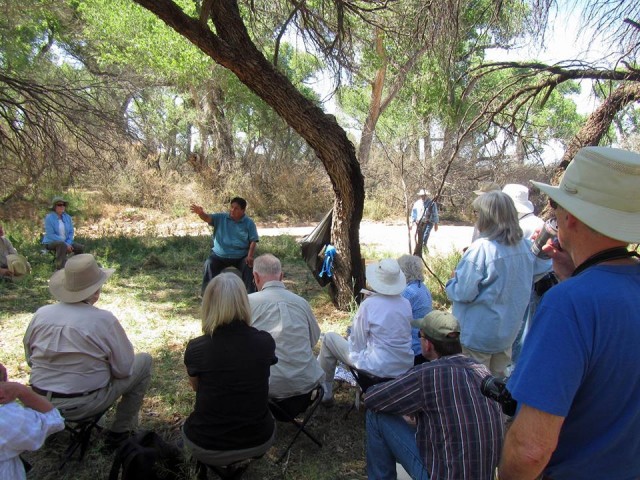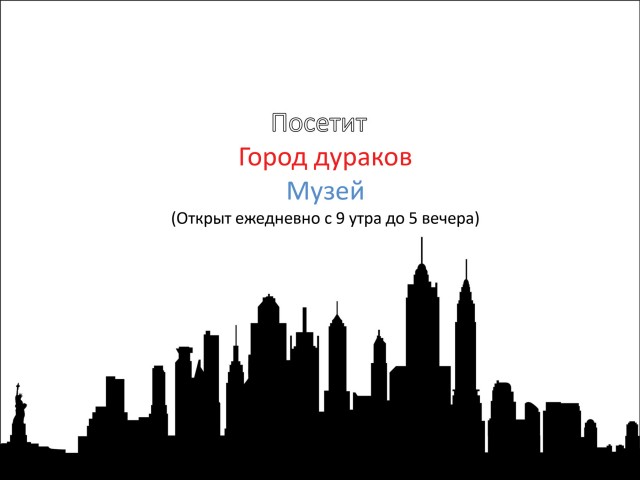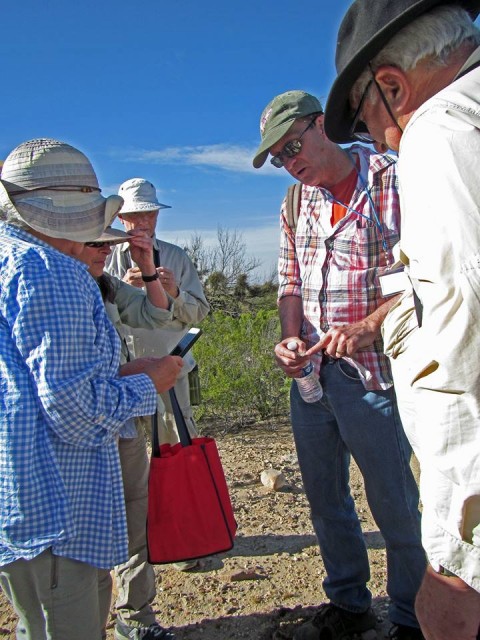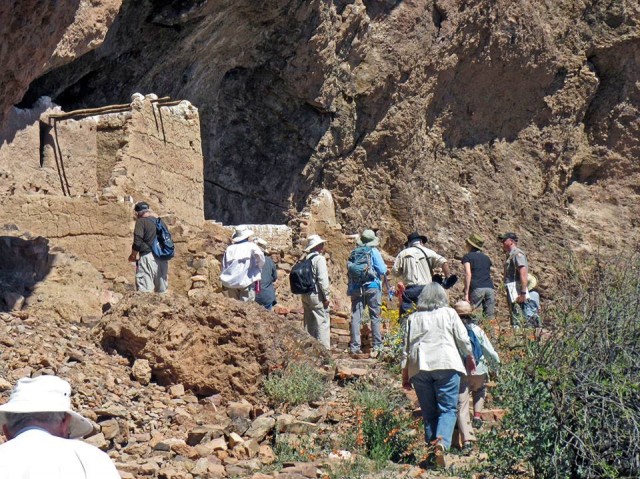- Home
- >
- Preservation Archaeology Blog
- >
- Gorod Durakov, or What’s In a Name?
(April 5, 2016)—I spent a wonderful and exhausting six days in late March as a guide for a weeklong members’ tour of Salado and Classic Hohokam archaeological sites in the valleys of southern Arizona. Bill Doelle, Lyle Balenquah, and Alan Osbourne were my co-guides. Up shortly after dawn (yes, even me, notorious night owl), the group was more or less together each day until dinner ended around 9:00 p.m. Experts Todd Bostwick, Doug Craig, Eric Kaldahl, Bernard Siquieros, Tony Chama, and Duane Hubbard (with his wonderful staff at Tonto National Monument) infused us with new energy along each leg of the trip.
It has taken me a few days to collect my initial thoughts after such an odyssey. The entire trip will probably take weeks to fully process. Among the high points for me were the civil exchanges among the various archaeologists and Native American participants, with Lyle wearing both hats. Sometimes, perspectives and interpretations diverged greatly, but I was pleasantly surprised by the degree of potential overlap.

As our intrepid driver, Kent, skillfully maneuvered the back roads in our “Magic Mystery Tour”-era coach, I had time to reflect on the names that archaeologists and early European settlers have bestowed upon archaeological sites, places that various Native groups consider to be their ancestral footprints. Site names like Buena Vista, Ninemile, Spear Ranch, and Reeve Ruin seem relatively benign, at least at face value. But what did Lyle, Bernard, and Tony think of names like “Goat Hill,” or “Tonto,” which means “foolish” in Spanish, and is presumably based on the term the Chiricahua Apaches used to describe the Apache bands who once roamed central Arizona? Or what about Besh-Ba-Gowah—“Metal Camp” in Apache—for the early mining settlement of Globe?
These strange and sometimes derogatory labels in foreign or even “enemy” languages are commonly used in the archaeological literature instead of the Pueblo and O’odham names. As an anthropologist, I often try to understand others by finding analogies that resonate with my own heritage. In this light, I wonder what I would think if, in some (I hope very) distant or alternative future, the ruins of New York City (“Manhattan” itself deriving from a Native place name) were called Город дураков (roughly Gorod Durakov), or “City of Fools” in Russian. Would I be insulted, or see the irony and smile? I would like to think the latter, but I am not so sure.



